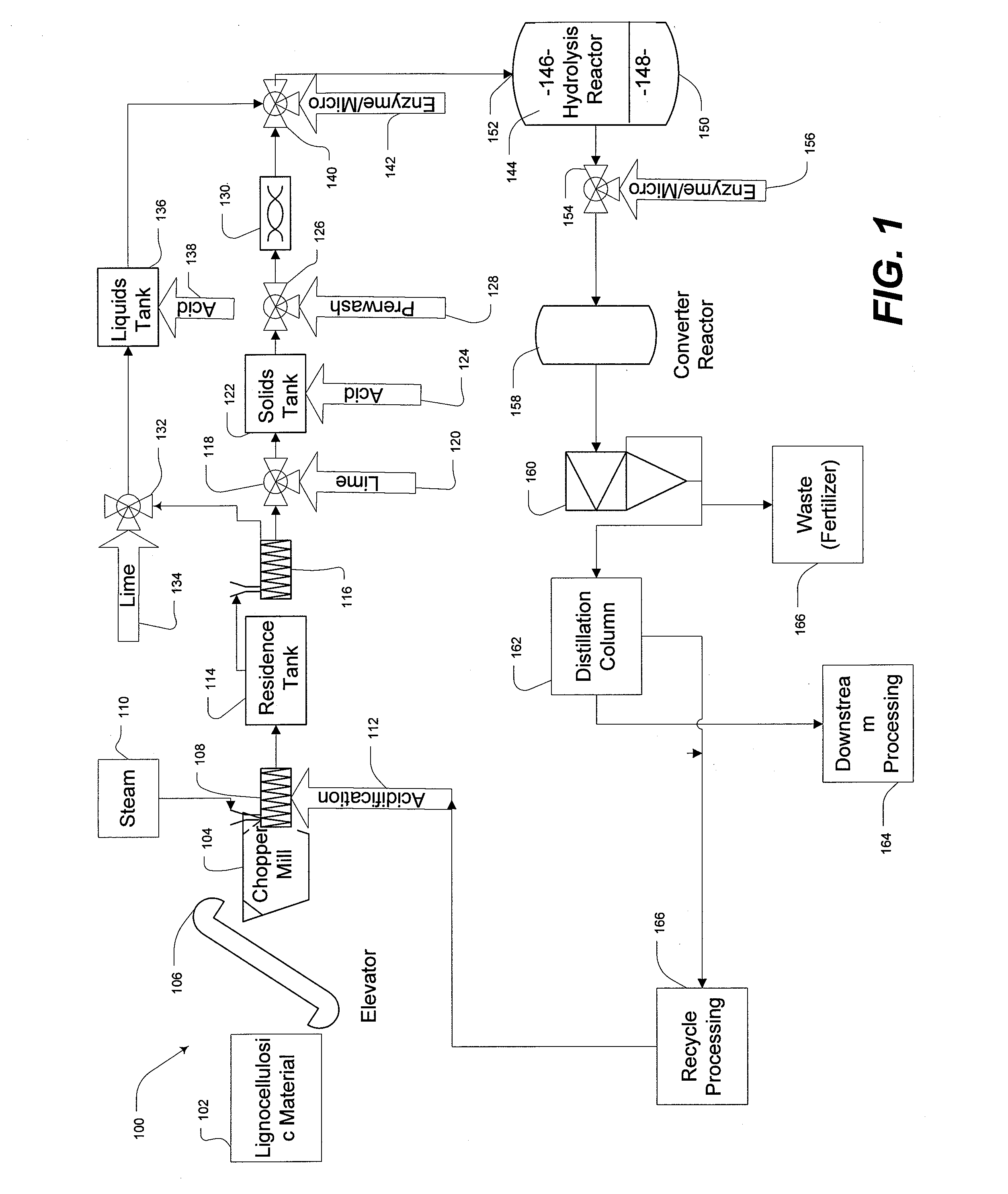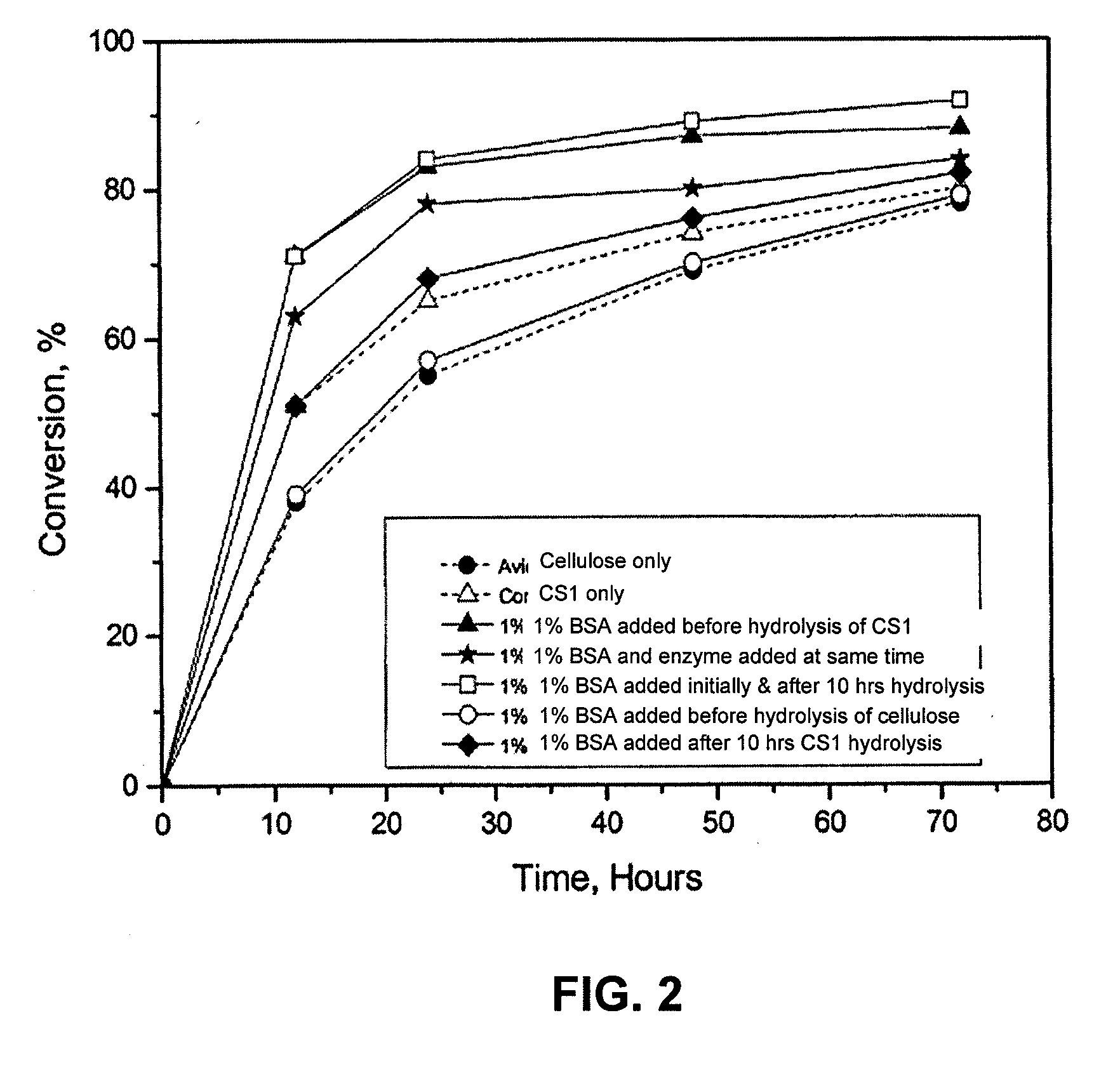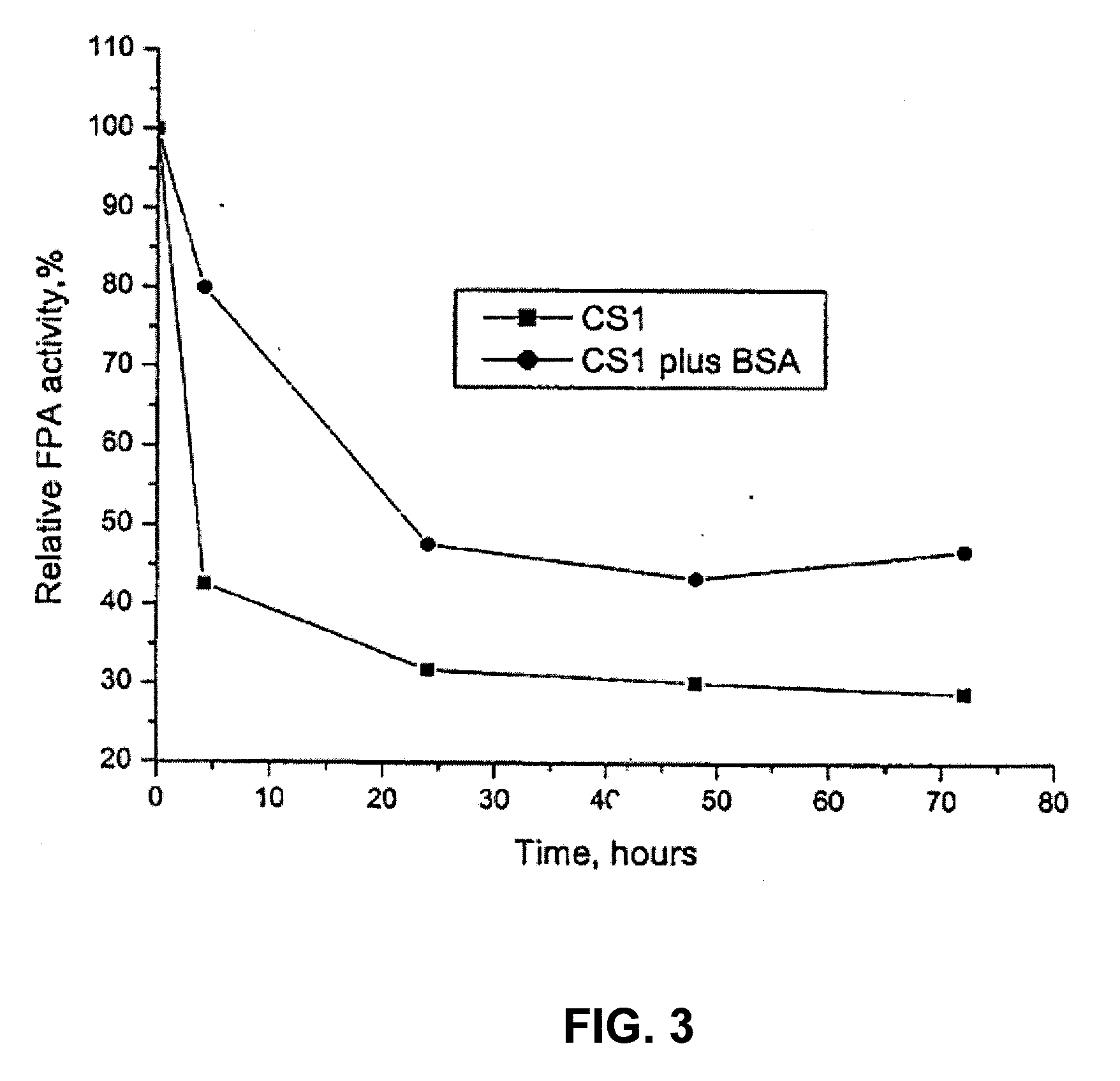Lignin Blockers And Uses Thereof
- Summary
- Abstract
- Description
- Claims
- Application Information
AI Technical Summary
Benefits of technology
Problems solved by technology
Method used
Image
Examples
example 1
High Lignin-Lignocellulosic Biomass Treatment with a Lignin Binding Protein
[0097]The present example demonstrates the utility of using a protein treatment, such as a protein / polypeptide washing step, to enhance the efficiency of cellulase activity in various high-lignin content lignocellulosic biomass sources. As compared to prior methods that attempt to degrade and remove the lignin content, the present method blocks the lignin by protein binding that prevents lignin from scavenging digestion enzymes. This example compares the protein prewashing methodology in the form of a wash pretreatment. Prior art techniques that include biomass processing with acid hydrolysis and / or steam explosion may be advantageously modified to include the protein prewash step as described below. Results show that similar efficiencies may be obtained by using substantially less cellulase enzyme when high lignin content biomass is prewashed with a protein solution that contains lignin-binding protein.
[0098...
example 2
Protein Treatment of High Lignin-Containing Biomass
[0111]The present example demonstrates the utility of enhancing cellulose degradation and the efficiency of cellulase, or other cellulose-degrading enzymes, by inhibiting the binding capacity of lignin with protein / peptide having a non-specific lignin-binding affinity.
[0112]Two types of cellulose sources were studied. One type was α-cellulose—a purified cellulose without appreciable lignin content. The other biomass type examined was corn stover (CS). Seven samples were studied including α-cellulose without protein prewash, α-cellulose with protein prewash, CS with protein prewash, CS without protein prewash, and CS with protein washing during the course of the study period. The CS had a lignin content of approximately 10% to 17% by weight.
[0113]Conversion of cellulose samples including α-cellulose and CS were examined. Each sample was pre-treated with 0.1% H2SO4 at 180° C. for 40 min. Prewashed samples were prepared by washing the ...
example 3
Bioconversion of Steam-Hydrolyzed Softwood with Protein Treatment
[0119]The present example further demonstrates the efficiency of bioconversion of a softwood lignocellulosic substrate that is pretreated with an acid catalyzed steam prehydrolysis step. The example provided here of a softwood lignocellulosic biomass was prepared from Douglas fir tree material.
[0120]A fir tree sample was prepared as described in Boussaid et al., Optimization of hemicellulose sugar recovery from a steam-exploded softwood (Douglas fir). Making a Business from Biomass in Energy, Environment, Chemicals, Fibers and Materials, Proceedings of the Biomass Conference of the Americas, 3rd, Montreal, Aug. 24-29, 1997. The biomass was then processed through a pre-hydrolysis treatment of steam explosion (195° C., 4.5% SO2 for 4.5 minutes). The steam exploded, prehydrolyzed biomass was then treated with a 20 FPU / g cellulose loading. The percent conversion by enzymatic hydrolysis was 54.2% after 72 hours. In contrast...
PUM
| Property | Measurement | Unit |
|---|---|---|
| Temperature | aaaaa | aaaaa |
| Temperature | aaaaa | aaaaa |
| Temperature | aaaaa | aaaaa |
Abstract
Description
Claims
Application Information
 Login to View More
Login to View More - R&D
- Intellectual Property
- Life Sciences
- Materials
- Tech Scout
- Unparalleled Data Quality
- Higher Quality Content
- 60% Fewer Hallucinations
Browse by: Latest US Patents, China's latest patents, Technical Efficacy Thesaurus, Application Domain, Technology Topic, Popular Technical Reports.
© 2025 PatSnap. All rights reserved.Legal|Privacy policy|Modern Slavery Act Transparency Statement|Sitemap|About US| Contact US: help@patsnap.com



